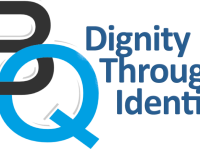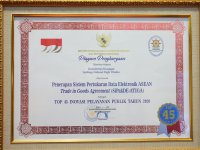BanQu is the first ever blockchain-based (patented) Supply Chain & Economic Passport platform that enables transparency, traceability, equity and sustainability for farmers (especially women), workers, waste pickers living in extreme poverty. BanQu has also become the leading platform for ensuring COVID-19 supplies are reaching the most vulnerable nations and communities in the MENA region. BanQu is being used in 40+ countries across over 1 million last-mile-first-mile beneficiaries today.
Innovation Tag: Digital and Technology Transformation
The Reducing Friction in Trade (RFIT) project was initiated in March 2019 as a proof of concept to establish how blockchain distributed ledger technology and associated technologies can be used to seamlessly integrate supply chain data with HM Revenue & Customs and the Food Standards Agency’s systems. The project intends to do so by guaranteeing the timeliness and provenance of critical data and avoiding the need for discrete declarations.
Innovacion Publica (IP) 360 seeks to respond to the low levels of trust in government and to the unequal distribution of innovation in Latin America's public sector. The project has a holistic approach to reach local governments that are not part of the mainstream opengov networks. It delivers actions in 19 local governments to strengthen citizen participation, transparency and digitalization. The lessons learned are then scaled up through a regional learning community of public innovators.
The EGTC GO represents an instrument to unlock cross-border potential for innovation, competitiveness, and sustainable growth. It promotes innovation in local governance through a supra-regional method to solve cross-border challenges - administrative and legal burdens – in order to provide concrete solutions for its territory and citizens. Flagship cooperation projects on Health, Culture and Social Innovation are key examples of the innovative added-value of the EGTC GO.
The Borderlands Partnership, comprising five local authorities on the border of England and Scotland, secured an innovative growth deal with the UK and Scottish Governments: the Borderlands Inclusive Growth Deal. The Deal will bring in up to £452m of fresh investment to support inclusive and sustainable growth across the Borderlands region and is anticipated to boost the region’s economy by £1.1 billion and create 5,500 additional job opportunities. It is the cross-border growth Deal in the…
Using AI algorithms and photographic images from school buildings in Nepal and Kyrgyzstan, two international public universities collaborated with a team from the World Bank to develop a technical solution to the long-standing problem of identifying the most vulnerable school building infrastructures in hard-to-reach areas of developing countries. With this solution, an estimated 875 million children and teachers at risk of being injured can be better protected from natural disaster harms.
The Indonesian Government has initiated “I-Gateway” as Hub for ASEAN Trading Document, enabling electronic data exchange such as certificates of origin to ensure authenticity, reduce paper work and eliminates redundancy. I-Gateway connects both domestically among national agencies and internationally with other countries. It validates and reconciles documents efficiently, to ensure its security as well as business process simplification and harmonization, aiming to higher ease of doing…
The West Africa Health Informatics Team (WAHIT), based at the West African Health Organization (WAHO), is a team of software developers and health information system experts that provide on-demand technical assistance to countries while building local capacity. Originally founded in the wake of the Ebola outbreak as a proof of concept to test innovative models for building local health informatics capacity, WAHIT evolved into a foundational component of WAHO’s leadership in health in the…
Case Study
ASEAN Food Security Information System (AFSIS): Innovation for Agricultural Data Management &…
The Government of the Republic of Korea has implemented an ICT-based agricultural data management system through digitalization and a human capacity building program, which allows innovative data collection, analysis, and sharing in 6 ASEAN member countries. Through this, the governments have improved the paperless work process on agricultural statistics, accumulating the data and human resources for enhancing food security in the ASEAN region.
Governments traditionally don’t share information and learnings and they are often slow to evolve. OneTeamGov is an innovative community that spans the globe, bringing together individuals who are committed to radically reforming government services and learning from each other. OneTeamGov are an entirely volunteer-run network of individuals who continue to share ideas, project learnings, new ways of working, and continue to push government to be better for all.




